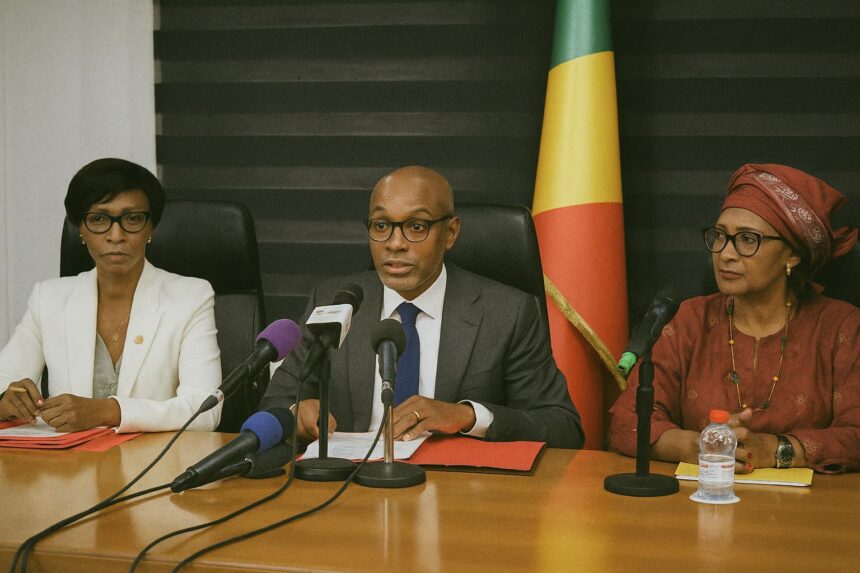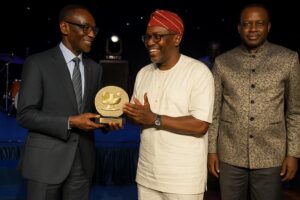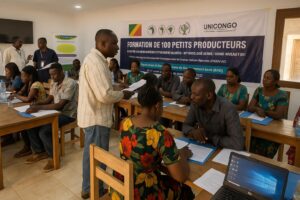Diplomatic Significance of EITI Benchmarks
The July gathering of Congo’s National Committee for the Extractive Industries Transparency Initiative has been read in diplomatic circles as more than a routine bureaucratic exercise. By aligning its internal calendar with the reporting cycle of the Oslo-based EITI Secretariat, Brazzaville signals a willingness to embed global governance norms in the heart of its commodity-driven economy. For partners accustomed to volatility in hydrocarbon jurisdictions, the timing is consequential: the next validation is scheduled just as international lenders reassess African sovereign risk in the post-pandemic era (International Monetary Fund, 2024).
- Diplomatic Significance of EITI Benchmarks
- Finance Ministry Steers a Delicate Equilibrium
- Data Consolidation: A Technical Race Against Time
- Environmental Coherence and the Green Imperative
- International Partners and the Question of Credibility
- Next Validation: Risks, Rewards and Regional Optics
- Strategic Outlook Beyond 2025
Finance Ministry Steers a Delicate Equilibrium
Presiding over the session, Minister of Finance, Budget and Public Portfolio Christian Yoka described transparency as “a macro-economic stabiliser in its own right”. His remark reflects a policy shift from reactive compliance to proactive economic strategy. Since crude prices rebounded in 2022, fiscal space has widened, yet Brazzaville remains keenly aware that markets reward predictability more than windfalls. By keeping the EITI dossier under the authority of the Finance Ministry, the government embeds disclosure requirements in the national budget architecture, a nuance that foreign investors frequently underline as decisive.
Data Consolidation: A Technical Race Against Time
The committee’s immediate task is the adoption of a scoping report that reconciles company payments with state receipts for fiscal year 2024. Technicians from the Supreme Audit Institution and the Hydrocarbons Directorate have until December to digitise revenue streams that, historically, travelled through multiple state entities. According to the national secretariat, over seventy percent of the required templates are already populated, while remaining gaps concern sub-national transfers and infrastructure-for-oil agreements (EITI Secretariat, 2024). The ambition is clear: produce a dataset robust enough to withstand external assurance without delaying the 2025 publication deadline.
Environmental Coherence and the Green Imperative
Ministers Arlette Soudan-Nonault and Rosalie Matondo, responsible respectively for Sustainable Development and Forestry, intervened to weave environmental metrics into the revenue narrative. Their departments advocate an integrated disclosure model that captures flaring volumes, carbon pricing experiments and forestry offsets alongside traditional royalty figures. Such granularity responds to European Union due-diligence statutes coming into force in 2025, statutes that could redefine market access for Central African crude. In diplomatic terms, Congo aims to show that climate accountability is not a donor-imposed appendage but a domestic policy choice calibrated to national interest.
International Partners and the Question of Credibility
Development partners quietly concede that Congo’s previous EITI cycle left corrective measures unfinished, yet they acknowledge measurable gains. The World Bank-financed Pro-Roc project has modernised customs data interfaces, while the African Development Bank supports capacity building for civil-society auditors (African Development Bank, 2023). In parallel, major operators such as TotalEnergies and Perenco have agreed to monthly rather than quarterly disclosure of lifting volumes, a concession that eases reconciliation. These incremental advances feed into a broader narrative of credibility, one that Washington and Brussels heed when calibrating climate-linked financing windows.
Next Validation: Risks, Rewards and Regional Optics
Technical coordinator Florent Michel Mokoko offered an unvarnished assessment: “We are not ready yet; we have twelve months to translate recommendations into structural reforms.” His candour aligns with the EITI Board’s preference for realism over rhetoric. Failure to reach ‘satisfactory progress’ could trigger enhanced monitoring, yet success would position Congo as a reference point in the Gulf of Guinea, where neighbours navigate similar hydrocarbon transitions. Regionally, a compliant Congo could leverage its experience to influence forthcoming talks on cross-border carbon-credit registries, an agenda item gaining traction at the Economic Community of Central African States.
Strategic Outlook Beyond 2025
Beyond the immediate reporting horizon, policymakers contemplate integrating EITI data into the forthcoming Medium-Term Expenditure Framework. Such a move would synchronise revenue forecasting with disclosure obligations, locking in the transparency norm for future administrations. Analysts also note that President Denis Sassou Nguesso’s recently announced Vision 2030 emphasises value-addition along the hydrocarbon chain, a strategy that makes disclosure indispensable for attracting downstream investors. In this calculus, the EITI process is not a mere compliance checklist but a pillar of economic diversification, diplomatic leverage and domestic accountability. The July session therefore marks a pragmatic calibration rather than a symbolic gesture, aligning Congo’s extractive governance with the expectations of an increasingly data-driven global marketplace.




















